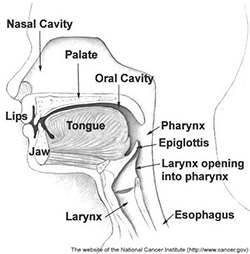Eosinophilic Esophagitis and Sublingual Immunotherapy: Our Experience

More frequently we hear about patients suffering with Eosinophilic Esophagitis (e-o-sin-o-FILL-ik uh-sof-uh-JIE-tis, or EoE) and concerns about using the La Crosse Method™ Protocol for allergy drop treatment where this condition is noted.
Eosinophilic Esophagitis is a build-up of white blood cells (eosinophils) in the lining of the tube that connects your mouth to your stomach. The disease is becoming more common, similar to the increase in people affected by asthma and allergies. As an inflammation, it can be painful and often manifests itself with symptoms such as:
- Stomach ache
- Difficulty swallowing
- Gastro esophageal reflux disease (GERD) symptoms that don’t respond to medication:
- Heartburn
- Burping
- Vomiting
- Chronic cough
- Poor weight gain in children
- Anemia
It can also be associated with underlying conditions such as allergies.
In more than half of pediatric cases of eosinophilic esophagitis, allergies are the major cause. When allergies are identified, their treatment may lead to dramatic improvement in eosinophilic esophagitis – and even its resolution.
Foods that are commonly found to be responsible for EoE may include milk, wheat, corn, but other foods may also contribute. Studies also note the increased incidence of EoE when using OIT – or oral immunotherapy for food allergy. The question remains whether OIT causes EoE, or triggers an existing underlying disease that had yet to surface.
We often receive questions about whether sublingual immunotherapy under the La Crosse Method is contraindicated for patients with EoE. In our experience, it is not. The underlying mechanisms for SLIT and OIT differ, which may explain why patients using SLIT under the Protocol don’t seem to have EoE exacerbations that are more common with OIT.
Our providers at Allergy Associates of La Crosse have found that treatment using the La Crosse Method Protocol can improve the condition for some patients. Sublingual immunotherapy addresses both inhalant and food allergies and can be especially beneficial for children with eosinophilic esophagitis because of its safety profile and increased compliance.
Eosinophilic esophagitis in children is likely to be associated with conditions such as asthma, nasal polyps and chronic sinusitis, which can often be avoided with early diagnosis and immunotherapy treatment.
Author: Mary Morris, MD, ABIM

